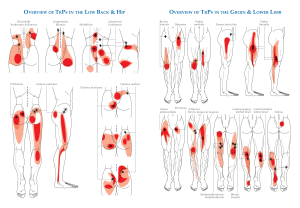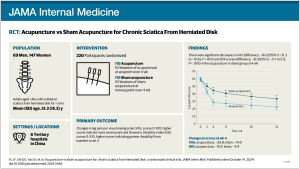Early Warning Signs Of An Issue With Your Child’s Spine

Category: | Author:
We all want our children to be happy and healthy, but we also realize neither of these things are completely within our control. With that said, if you are aware of some of the early warning signs of an issue with your child’s spine, you may be able to catch a problem in its infancy and get them the care they need to treat it before it snowballs into a major health concern. Below, we share some of the early warning signs of spinal issues in children.
Symptoms Of Back Problems In Children
Before we dive into some potentially problematic symptoms, it’s important to know that nothing on this list is definitive. Your child may be dealing with one or more of the following issues and simply be going through a growth spurt or dealing with an acute injury and nothing more. However, if the issues persist, you’ll want to talk to your child’s pediatrician to have them take a closer look. Here are some of the signs that can sometimes suggest a possible issue is developing in an adolescent spine.
- Pain – Back pain is a common symptom in patients with mild, moderate or severe spinal issues, so it’s not exactly a great way to determine whether or not your child is dealing with a serious back issue. While pain itself is abnormal, if it is minor or mild, you can pinpoint the likely cause and it gets better over the course of a few days or weeks, odds are it’s not indicative of a major issue. However, if pain is intense, persistent or it ends up getting worse, it’s time to bring your child to the clinic to have their spine examined.
- No Obvious Cause – If your child just played a basketball tournament or they missed a step when running down the stairs, you probably have a pretty good idea of what’s causing their spine discomfort. Conversely, if your child starts complaining of spinal discomfort and there is no obvious cause as to why symptoms may be present, you may want to have them evaluated by a professional.
- Visible Deformity – Another sign that something may be amiss with your child’s spine is if you can see a visible deformity with their back. If their shoulders appear crooked or have a hunched appearance, or their spine simply doesn’t appear straight, they could be dealing with a curvature disorder like scoliosis or kyphosis. Reach out to your pediatrician to have their spine assessed.
- Movement Restrictions – If your child has mentioned that it’s difficult or painful for them to bend over or to twist in one direction, it’s worth bringing this up to your doctor at their next appointment. In older adults, natural degeneration and arthritis can lead to movement restrictions, but these issues should not affect children, so any movement difficulties could be a sign of an underlying issue.
- Bladder or Bowel Issues – Finally, if your child has been going to the bathroom by themselves for a while but has recently dealt with some bladder or bowel problems, a spine problem could be causing these bathroom issues. There are plenty of other reasons why your child may be having accidents, but spinal nerve compression could be the underlying cause. Talk to your child’s physician if they have developed some unexpected bladder issues recently.
Again, there’s no guarantee that any of these symptoms definitively mean that your child has a spine issue, but you’ll at least want to bring them up to your child’s physician at an appointment or their next physical. The earlier spine issues are treated, the better they respond to care, and that can make all the difference when it comes to effective treatment.
For more information, or for help with a different spine issue, reach out to Dr. Sinicropi and the team at The Midwest Spine & Brain Institute today at (651) 430-3800.
Related




